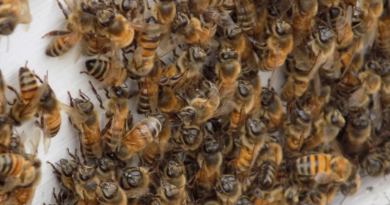Missouri Amendment 3: Comprehensive Guide to the Marijuana Legalization Initiative
Missouri Amendment 3, commonly referred to as the Marijuana Legalization Initiative, was a ballot measure presented to Missouri voters on November 8, 2022. In addition to legalization, Amendment 3 sought to create a comprehensive regulatory framework to oversee the production, distribution, and sale of marijuana within the state.
Overview of Missouri Amendment 3
The regulatory framework established by Amendment 3 delegated the responsibility of licensing and regulation to the Missouri Department of Revenue. This included the issuance of licenses for various types of marijuana-related businesses, such as retail stores, cultivation facilities, product manufacturing facilities, and testing facilities. The amendment also provided guidelines for local governments to regulate and enforce marijuana-related activities within their jurisdictions.
To ensure a sustainable marijuana market, Amendment 3 imposed a taxation system on marijuana sales. The initiative set a 12% tax on retail sales of recreational marijuana and a 3.5% tax on medical marijuana sales. The revenue generated from these taxes was designated to support various public services, including veterans’ services, early childhood education, substance abuse treatment programs, and local law enforcement grants.
Additionally, Missouri Amendment 3 addressed the social impact of marijuana prohibition by allowing individuals with prior marijuana-related convictions to petition for the expungement of their criminal records. This provision aimed to rectify the historical injustices associated with marijuana criminalization and provide opportunities for those affected to reintegrate into society.
Missouri Amendment 3 was a comprehensive ballot measure that aimed to legalize marijuana for recreational use, establish a robust regulatory framework for its production and distribution, and generate much-needed revenue for public services, all while addressing the societal consequences of marijuana prohibition.
Key Provisions of Missouri Amendment 3
Missouri Amendment 3, the Marijuana Legalization Initiative, introduced several key provisions to legalize and regulate marijuana for recreational use in the state. These provisions address various aspects of the marijuana market, including personal use, taxation, revenue allocation, and criminal record expungement.
Personal Use, Cultivation, and Regulation of Marijuana
Under Amendment 3, adults aged 21 and over are permitted to possess, use, and cultivate marijuana for personal use. The specific limits include:
- Possession of up to 1 ounce (28 grams) of marijuana for personal use.
- Cultivation of up to six marijuana plants per household, with no more than three mature plants at any given time.
Amendment 3 also provides guidelines for the establishment and regulation of marijuana-related businesses, including retail stores, cultivation facilities, product manufacturing facilities, and testing facilities. The Missouri Department of Revenue is responsible for overseeing the licensing and regulation of these businesses, while local governments have the authority to regulate and enforce marijuana-related activities within their jurisdictions.
Taxation Structure for Marijuana Sales
Amendment 3 introduces a taxation system for marijuana sales, with separate tax rates for recreational and medical marijuana:
- Recreational marijuana sales are subject to a 12% tax.
- Medical marijuana sales are subject to a 3.5% tax.
These taxes are levied in addition to any applicable state and local sales taxes.
Allocation of Marijuana Tax Revenue
The revenue generated from marijuana sales taxes is earmarked for several public services and programs. The distribution of funds is as follows:
- 50% to the Missouri Veterans Commission for veterans’ services, such as healthcare, education, and housing assistance.
- 25% to the Department of Elementary and Secondary Education for early childhood education programs, including preschool and childcare services.
- 15% to the Department of Health and Senior Services for substance abuse treatment programs, focusing on prevention, intervention, and recovery support.
- 10% to the Department of Public Safety for local law enforcement grants, aimed at enhancing public safety and community policing efforts.
Expungement of Marijuana-Related Convictions
Amendment 3 includes a provision that allows individuals with prior marijuana-related convictions to petition the courts for the expungement of their criminal records. Eligible convictions include non-violent, marijuana-related offenses that would no longer be considered illegal under the new law. This provision seeks to address the disproportionate impact of marijuana prohibition on certain communities and offer a fresh start to those affected.
In conclusion, the key provisions of Missouri Amendment 3 focus on legalizing and regulating marijuana use for adults, establishing a taxation system for marijuana sales, allocating tax revenue to support essential public services, and providing an opportunity for individuals with marijuana-related convictions to expunge their criminal records. These provisions work together to create a comprehensive and responsible framework for marijuana legalization in Missouri.

Public Opinion and Support for Missouri Amendment 3
In the lead-up to the vote on Missouri Amendment 3, public opinion polls consistently demonstrated strong support for marijuana legalization within the state. A variety of factors contributed to this favorable public opinion, including the perceived benefits of legalization, the potential for increased tax revenue, and growing national trends toward marijuana policy reform.
Perceived Benefits of Legalization
Supporters of Amendment 3 emphasized the potential benefits of marijuana legalization, such as reducing the burden on law enforcement, improving public safety, and fostering a regulated market that could eliminate illicit marijuana sales.
Potential for Increased Tax Revenue
Amendment 3 proposed a taxation system for marijuana sales that would generate significant revenue for the state of Missouri. Many St Louis Missouri voters saw this as an opportunity to fund crucial public services, such as veterans’ services, early childhood education, substance abuse treatment programs, and local law enforcement grants. The promise of additional funding for these essential programs was a persuasive argument for many voters, contributing to the overall support for the initiative.
Growing National Trends and State Comparisons
The increasing number of states legalizing marijuana for recreational use helped shape public opinion in Missouri. As more states successfully implemented marijuana legalization, the stigma surrounding the plant began to diminish, and the potential benefits became more apparent. Moreover, neighboring states with legalized marijuana, such as Illinois and Colorado, served as examples of the potential economic growth and job creation that could result from Amendment 3.
Advocacy Groups and Public Awareness Campaigns
Various advocacy groups and organizations played a vital role in promoting Missouri Amendment 3 and educating the public on the potential benefits of marijuana legalization. Groups such as Missourians for a New Approach were instrumental in organizing public awareness campaigns, hosting educational events, and engaging with the media to ensure that voters were well-informed on the issue.
In conclusion, public opinion and support for Missouri Amendment 3 were shaped by several factors, including the perceived benefits of legalization, the potential for increased tax revenue, growing national trends toward marijuana policy reform, and the efforts of advocacy groups to raise awareness about the issue. Ultimately, the widespread support for Amendment 3 contributed to its successful passage and the legalization of marijuana in Missouri.
Election Results and Implementation Timeline
Missouri Amendment 3, the Marijuana Legalization Initiative, garnered significant support from voters and ultimately passed on November 8, 2022. The successful passage of this ballot measure set the stage for a phased implementation of marijuana legalization and regulation in the state. The following timeline outlines the key milestones in the implementation process:
January 1, 2023: Personal Use and Cultivation Legalization
As of January 1, 2023, the possession, use, and cultivation of marijuana for personal use became legal for adults aged 21 and over in Missouri. This was the first step in the implementation of Amendment 3, alowing individuals to possess up to 1 ounce (28 grams) of marijuana and cultivate up to six plants per household, with a maximum of three mature plants at any given time.
April 1, 2023: Application Period for Marijuana Business Licenses
On April 1, 2023, the Missouri Department of Revenue began accepting applications for marijuana business licenses. Prospective marijuana-related businesses, including retail stores, cultivation facilities, product manufacturing facilities, and testing facilities, were required to submit their applications and meet the necessary licensing requirements to operate within the state.
October 1, 2023: Commencement of Retail Marijuana Sales
Retail marijuana sales are expected to commence on October 1, 2023, provided that the licensing process proceeds as planned. This milestone will mark the beginning of a regulated marijuana market in Missouri, with licensed businesses operating under the oversight of the Missouri Department of Revenue and local governments.
Ongoing: Expungement of Marijuana-Related Convictions
Following the passage of Amendment 3, individuals with prior marijuana-related convictions became eligible to petition for the expungement of their criminal records. This process is ongoing, with no specific deadline for submitting expungement petitions. Eligible convictions include non-violent, marijuana-related offenses that are no longer considered illegal under the new law.
In summary, the successful passage of Missouri Amendment 3 led to a phased implementation process that began with the legalization of personal marijuana use and cultivation, followed by the licensing of marijuana-related businesses and the commencement of retail sales. Additionally, the ongoing expungement of marijuana-related convictions provides an opportunity for individuals affected by marijuana prohibition to reintegrate into society. The implementation of Amendment 3 reflects Missouri’s commitment to creating a responsible and regulated marijuana market that benefits both the state and its citizens.
Potential Economic Impact of Missouri Amendment 3
The legalization of marijuana under Missouri Amendment 3 is expected to have a substantial economic impact on the state. The primary areas of economic influence include revenue generation from marijuana sales taxes, job creation, business opportunities, and the potential reduction in law enforcement and criminal justice expenditures.
Revenue Generation from Marijuana Sales Taxes
Amendment 3 imposes a 12% tax on retail sales of recreational marijuana and a 3.5% tax on medical marijuana sales. The allocation of this revenue to essential public services, such as veterans’ services, early childhood education, substance abuse treatment programs, and local law enforcement grants, can have a far-reaching positive impact on the state’s budget and overall economic health.
Job Creation
The establishment of a regulated marijuana market in Missouri is anticipated to stimulate job growth across various sectors, including cultivation, processing, retail, and ancillary services. Job opportunities are expected to range from entry-level positions to specialized roles, such as horticulturists, chemists, and compliance officers. The expansion of the marijuana industry can also indirectly create jobs in other sectors, such as construction, transportation, and professional services, contributing to the overall economic growth in the state.
Business Opportunities
Amendment 3 opens the door for new business opportunities within the marijuana industry. Entrepreneurs and investors can explore various ventures, such as opening retail stores, starting cultivation facilities, or developing innovative marijuana products. Additionally, ancillary businesses that support the marijuana industry, such as marketing agencies, equipment suppliers, and consulting firms, can also benefit from the expansion of the market.
Reduction in Law Enforcement and Criminal Justice Expenditures
The legalization of marijuana can potentially lead to a decrease in law enforcement and criminal justice expenditures associated with marijuana arrests, prosecutions, and incarcerations. Redirecting these resources to address other public safety concerns and community needs can contribute to the overall economic well-being of the state.
In conclusion, the potential economic impact of Missouri Amendment 3 is multifaceted, encompassing revenue generation from marijuana sales taxes, job creation, business opportunities, and the potential reduction in law enforcement and criminal justice expenditures. As the state moves forward with the implementation of Amendment 3, it is expected to experience significant economic benefits resulting from the development of a regulated and thriving marijuana market.
Missouri Amendment 3: Frequently Asked Questions
Q: What is Missouri Amendment 3?
Missouri Amendment 3, also known as the Marijuana Legalization Initiative, is a ballot measure passed in November 2022 that legalizes marijuana for recreational use by adults aged 21 and over. It also establishes a regulatory framework for the production, distribution, and sale of marijuana and imposes taxes on marijuana sales.
Q: When did marijuana become legal for recreational use in Missouri?
Personal use and cultivation of marijuana for adults aged 21 and over became legal in Missouri on January 1, 2023, following the passage of Amendment 3.
Q: How much marijuana can adults possess under Missouri Amendment 3?
Missouri residents aged 21 and over can possess up to 1 ounce (28 grams) of marijuana for personal use. Aditionally, they can cultivate up to six marijuana plants per household, with no more than three mature plants at any given time.
Q: What are the tax rates on marijuana sales in Missouri?
New Tax rates – under Amendment 3, recreational marijuana sales are subject to a 12% tax, while medical marijuana sales are subject to a 3.5% tax. These taxes are levied in adition to any applicable state and local sales taxes.
Q: How is the revenue generated from marijuana sales taxes allocated?
The revenue from marijuana sales taxes is allocated as follows: 50% to the Missouri Veterans Commission for veterans’ services, 25% to the Department of Elementary and Secondary Education for early childhood education programs, 15% to the Department of Health and Senior Services for substance abuse treatment programs, and 10% to the Department of Public Safety for local law enforcement grants.
Q: Can individuals with prior marijuana-related convictions apply for expungement?
Yes, Amendment 3 allows individuals with non-violent, marijuana-related convictions that would no longer be considered illegal under the new law to petition the courts for expungement of their criminal records.
Q: When can we expect retail marijuana sales to begin in Missouri?
Retail marijuana sales are expected to commence on October 1, 2023, provided that the licensing process for marijuana-related businesses proceeds as planned.
Q: Which agency is responsible for regulating marijuana-related businesses in Missouri?
The Missouri Department of Revenue is responsible for overseeing the licensing and regulation of marijuana-related businesses, including retail stores, cultivation facilities, product manufacturing facilities, and testing facilities.








